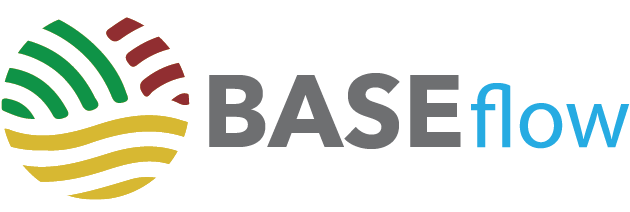In A Nutshell
Collaborate with the partner organization to identify existing Open Research Data practices, formulate a preliminary data management strategy, pinpoint datasets ready for open publication and those requiring more careful scrutiny before publication, and deliver data science training to a community of organisations who are interested in improving their open data practice.
Responsibilities
- Identifying Current Data Management Practices and Developing a Draft Data
Management Strategy for BASEflow- Conduct an Audit of Current Data Management Practices: Review how data
is currently collected, stored, accessed, and utilized within BASEflow. Identify any gaps, inefficiencies, or potential risks. - Stakeholder Consultation: Engage with key stakeholders (e.g., data users, IT staff, management) to understand their needs, challenges, and suggestions regarding data management.
- Benchmarking Against Best Practices: Research and compare BASEflow’s data management practices with industry standards and best practices to identify areas for improvement.
- Draft Data Management Strategy: Develop a strategy document outlining recommended practices, tools, policies, and procedures for data management, including data governance, storage solutions, data sharing protocols, and data security measures.
- Review and Feedback: Present the draft strategy to stakeholders for feedback and make necessary revisions before finalizing the document.
- Conduct an Audit of Current Data Management Practices: Review how data
- Publishing at Least 10 Datasets of Two Different Types Available to BASEflow
- Identify and Categorize Available Datasets: List all datasets available to BASEflow, categorizing them into types (e.g., environmental data, community surveys, operational data).
- Select Target Datasets for Publication: Choose at least 10 datasets from two different categories for publication, prioritizing those that are most valuable or frequently requested.
- Data Cleaning and Standardization: Prepare the selected datasets by cleaning, organizing, and standardizing the data to ensure consistency and usability.
- Metadata Documentation: Create comprehensive metadata for each dataset, including descriptions, data sources, collection methods, and usage guidelines.
- Publication on Accessible Platform: Publish the datasets on an appropriate platform (e.g., data repository, cloud storage) that ensures easy access while maintaining data security.
- Communication and Outreach: Inform relevant stakeholders about the availability of the published datasets and provide guidance on how to access and utilize them.
- Supporting Data Science Trainings with Varying Styles, Focus Topics, and Audiences
- Needs Assessment and Audience Analysis: Identify the specific data science skills gaps and training needs within BASEflow and its partners. Analyze the target audience for each training program, considering factors like experience level, job role, and learning preferences.
- Curriculum Development for Diverse Topics: Design tailored training curricula covering a range of data science topics (e.g., data visualization, statistical analysis, machine learning) suited to different skill levels and organizational needs.
- Design Training Materials: Create engaging training materials, including presentations, hands-on exercises, tutorials, and reference guides, adapted to various teaching styles (e.g., workshops, seminars, online courses).
- Deliver Training Sessions: Conduct the training sessions using a mix of delivery methods (e.g., in-person workshops, webinars, self-paced online modules) to cater to different audiences and learning styles.
- Post-Training Evaluation and Support: Gather feedback from participants to assess the effectiveness of the training. Provide follow-up support, such as Q&A sessions, refresher courses, or additional resources, to reinforce learning.
- Continuous Improvement: Use feedback and outcomes from the training sessions to continuously refine and improve future training programs.
Skillset
- A Master’s degree or equivalent, approved qualification in Computer Science, Data Science, Engineering, Media and Communication, Statistics, Development Studies, or related.
- At least 3-5 years of experience using data science tools (e.g. Git, GitHub, R, Python, RStudio IDE, VS Code, etc.).
- Experience in developing curriculum, facilitating, coordinating, and conducting training sessions to audiences of varying diversities in Malawi.
- An understanding of innovative/creative teaching strategies that ensure inclusivity will have an added advantage.
- Experience managing and conducting interdisciplinary (research) projects in environmental and social sciences, engineering, and international development.
